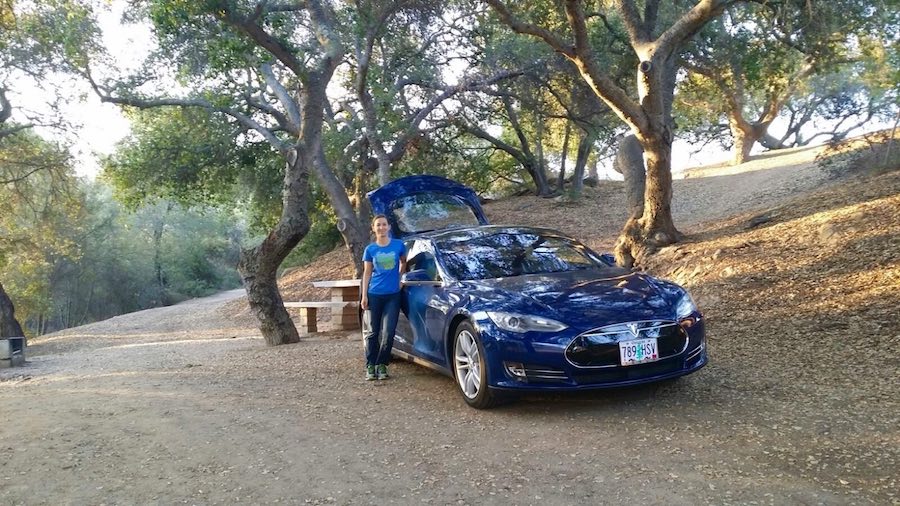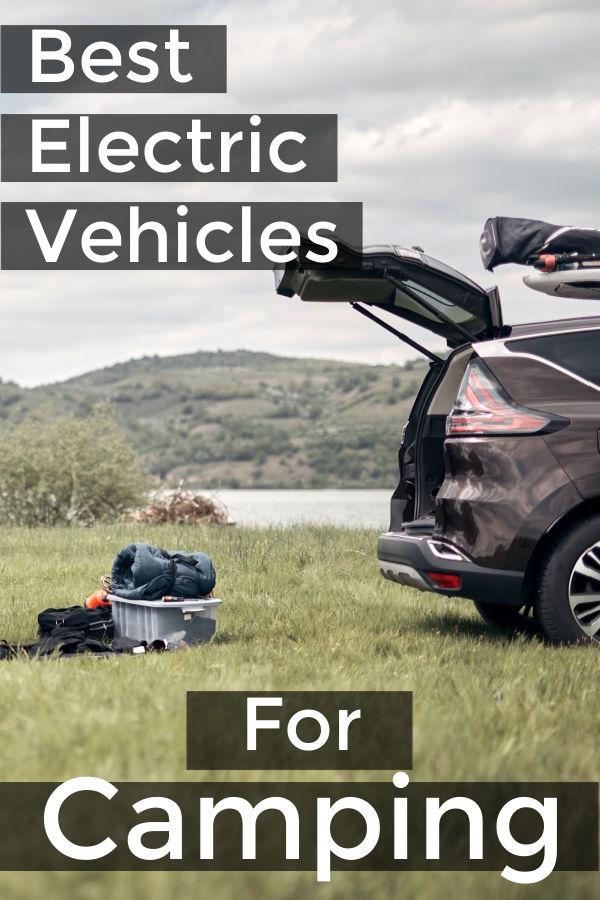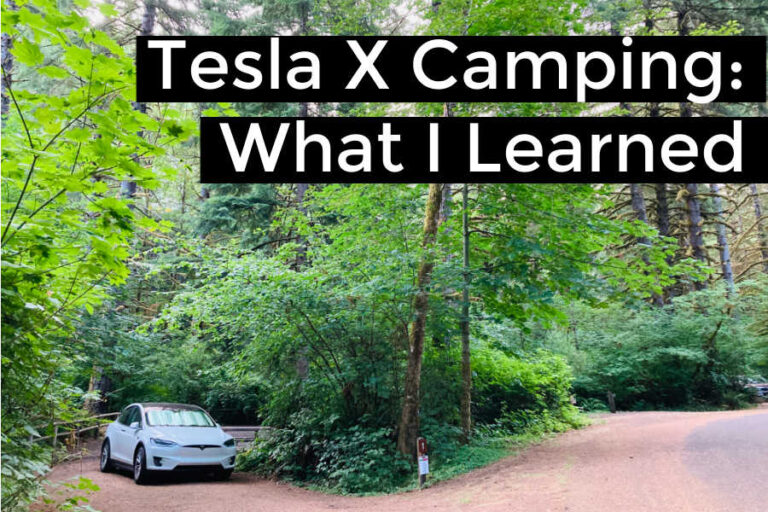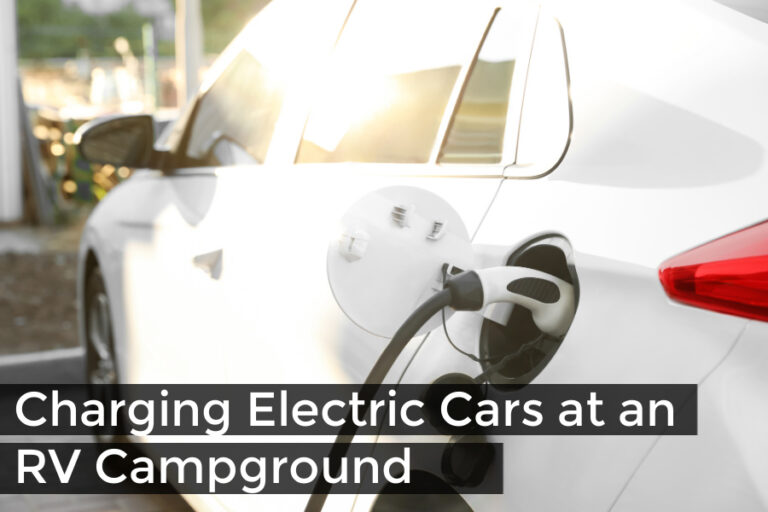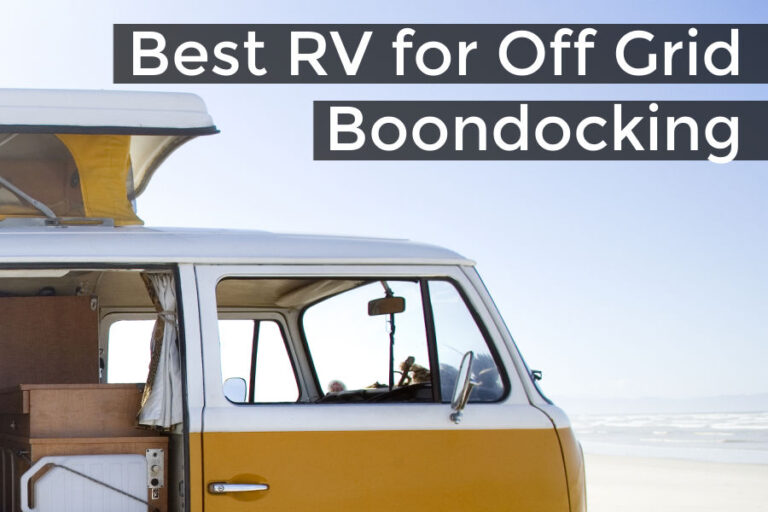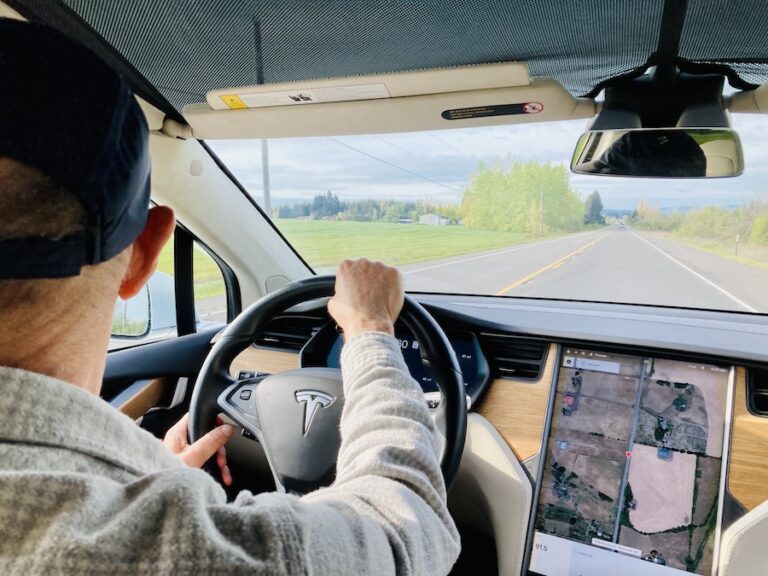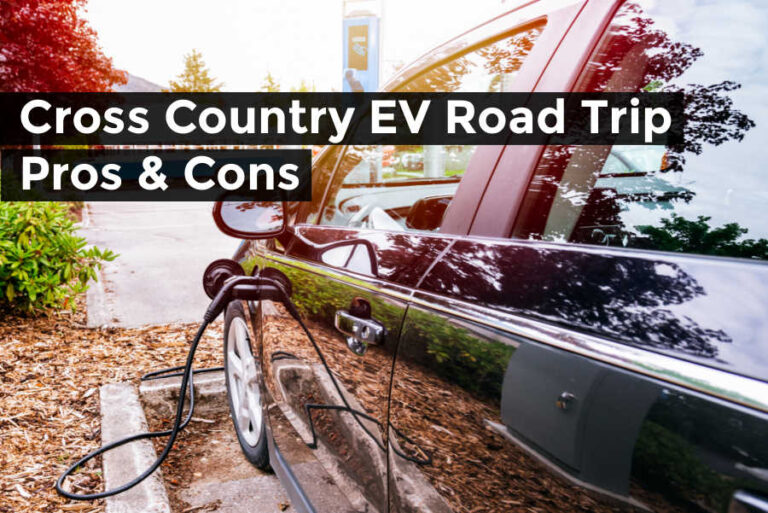What is the best electric car for camping in 2022?
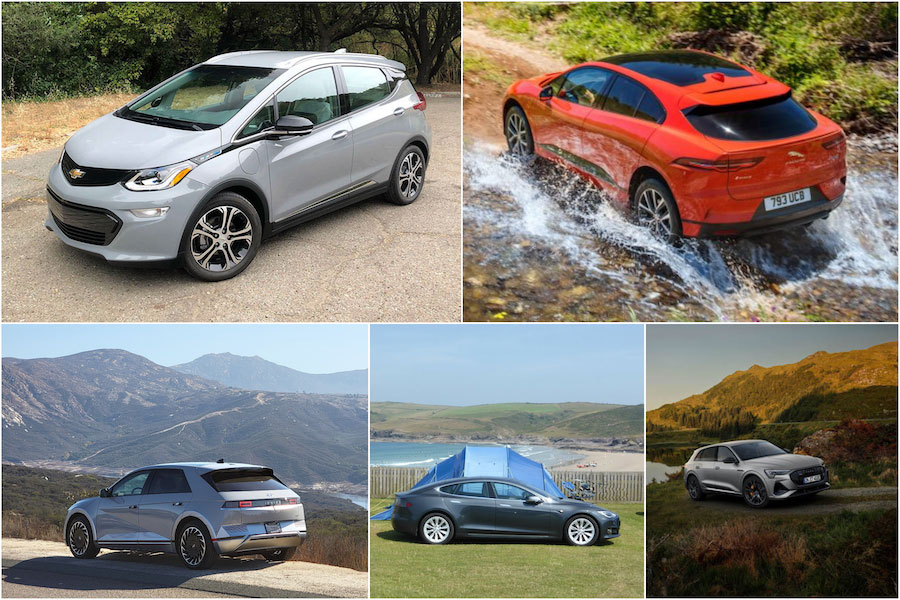
Electric vehicles (EVs) are the way of the future. With technology constantly evolving and the auto industry doubling down and producing new EV models each year, it will only be a matter of time when EVs will dominate the outdoor travel industry and be a mainstay at campgrounds.
During the pandemic, they provided a perfect solution for traveling while staying safe in the great outdoors. Not only do you maintain a smaller carbon footprint as you travel, you also save on fuel cost and overall maintenance costs.
Another great advantage is that there are many ways to use EVs for camping. You can use it to tow a camper, sleep inside your vehicle, or even as a secondary vehicle towed behind an RV.
Keep reading to find out what’s the best electric vehicle cars for camping!
Coming soon: the best electric vehicle trucks and vans for camping.
Electric Car Camping FAQs
Here are some facts about camping in an electric vehicle. If you have other questions about EV camping, please share them in the comments and we’ll continue to update this article!
Can you take an electric car camping? Yes! With updates like camp mode, EV-specific camping gear, and availability of chargers in RV camps, electric car camping has never been easier.
Can I go camping with a Tesla? Yes! Read our article all about camping in a Tesla here >
Is it safe to sleep in an electric car? Yes. Electric cars don’t emit carbon monoxide like internal combustion engine (ICE) cars do. Keep in mind that this may not apply for hybrid cars which function differently. But generally it is safe to sleep in vehicles.
Can I charge my EV at a campground? Do I need an adapter? Usually yes. To charge in campgrounds, you’ll most likely need to have a travel EVSE adapter. This will allow you to charge in the 50 amp plugs commonly found in RV parks.
How does an EV compare to a PHEV? Learn more about EV vs. PHEV here >
Quick Tips for Camping With an Electric Vehicle
- Pack a charging kit – Depending on where you camp, you’ll likely need a travel EVSE or an adapter to plug in. RV parks generally have 50 amp plugs (14-50 Nema plug) or 35 amp (TT-30) plugs.
- Use camp mode, if it’s available – With the rise of EV camping, manufacturers like Tesla have created a specific mode for camping. Usually this mode regulates airflow and temperature, controls interior lighting, and saves battery while you sleep overnight.
- Call RV campgrounds in advance – Not all RV sites may have the right electrical systems for your EV so make sure to ask and even reserve your spot in advance.
- Get creative with camping gear – Maximize energy and space by looking into gear like rooftop tents, electric camper vans, solar powered chargers, and EV mattresses.
- Plan wisely, always with range and charging in mind – as you plan your trip, consider your estimated range, charging options along your route, and charging options at your final destination.
- Determine how you will camp – If you plan to sleep in your car, find a way to block windows and create privacy. If you’re tent camping, think about the extra gear you might need to bring. Figure out what best works for you.
Best electric cars for camping
The best EV for camping depends on your travel plans and needs. Below we’ll share some of the top choices and the features that stand out for each one.
Tesla Model S for Camping
The Tesla Model S is a great option for camping because of its total range of up to 405 miles. You can charge at RV sites as long as you have the right adapters, but with its range you can go longer distances with a single charge.
With Tesla camp mode, sleeping inside the Model S can be quite comfortable. From people’s experience, there is enough room for a twin-sized regular air mattress. You can also find model-specific mattresses and heat shields for privacy to avoid using up as much battery.
The downside is that the Model S is not officially rated for towing trailers and there is no specification by Tesla on the towing capacity. You can install after-sales tow hitches, but you risk losing your warranty. Another con? Teslas are expensive.
Estimated range on a full charge: 405 miles
Read more about camping in other Tesla vehicles here >
Read what I learned about sleeping in a Tesla Model X while off grid >
Jaguar I-Pace SUV for Camping
The Jaguar I-Pace SUV can be used for sleeping when camping, though there isn’t a lot of extra space.
The vehicle is relatively smaller compared to other EVs since the design is more inspired by sports cars. It also has a large glass roof that could pose some issues with climate and temperature control.
But if you’re planning a grand road trip across the United States, the I-Pace’s off-road mode might come in handy. Its 4×4 capabilities are well-tuned because of the systems adapted from Jaguar’s sister company, Land Rover.
The Jaguar I-Pace SUV has a fairly small towing capacity at a little over 1,600 lbs. As such it’s pretty limited to towing only lightweight caravans or trailers.
Estimated range on a full charge: 292
Chevy Bolt Camping
Chevy Bolt camping has become popular, though a downside is that the interior is not as spacious as other models. For a more comfortable experience, some have suggested installing a rooftop tent to sleep in instead.
The Chevy Bolt is said to be not designed for towing and as such has no official towing capacity. But in some EV camping forums, people have many different opinions. Some say around 2,000 lbs is manageable while others are strictly against it. We recommend doing your research since it can affect your warranty and the miles of electrical range.
One of the best reasons to get a Chevy Bolt is they are a lot more affordable compared to Teslas or Jaguars.
Estimated range on a full charge: 259 miles
Hyundai Ioniq 5
One of the best, awarding winning EVs currently on the market is also a great option for EV car camping. The Hyundai Ioniq 5 has a great combination of range, space, and comfort.
Along with being one of the more affordable options on the market, it also has a neat trick up its sleeve. You can use the charge port and reverse the energy flow to use the car to power electric devices. At a campground this might be an electric stove, lights, and more. Of course it will draw some energy but it’s nice to know the option exists.
Estimated range on a full charge: 303 miles (biggest battery model – 77.4kWh, single motor)
Toyota RAV4 Prime (plug-in EV hybrid)
Though not a true EV only, this amazing vehicle should be on your list of consideration for any outdoor pursuit. The RAV4 Prime features 42 miles of pure EV use and roughly 600 miles of total range. No range anxiety! You can plan for a longer trip and never use gas while running small errands near your campsite.
Additional benefits include a more spacious interior than it’s competitors and all at a lower cost than similarly sized EVs.
Two major drawbacks to be aware of. First, this is not a pure EV. You’ll still need to visit a gas station from time to time. Second, the RAV4 Prime are hard to find. Inventory is low and demand is high which can actually drive the price up.
Estimated range on a full charge: 42 miles pure EV mode and 600 miles full range with gas.
To find the best EV car for camping, you have to consider factors such as space and comfort, electric range, and towing capacity. The best part is there is a variety of electric vehicles to choose from in the market to kickstart your EV camping journey.
Have you gone camping with an electric vehicle? Please share your experience, advice, and questions in the comments.
Like this post? Pin it for later or share with friends!
